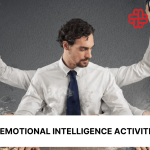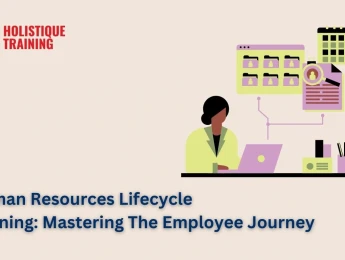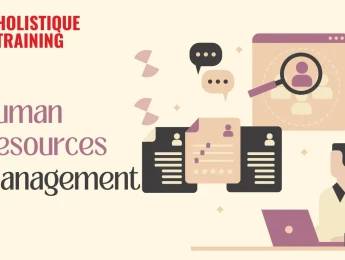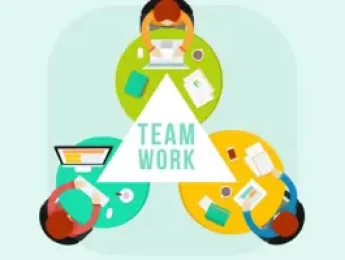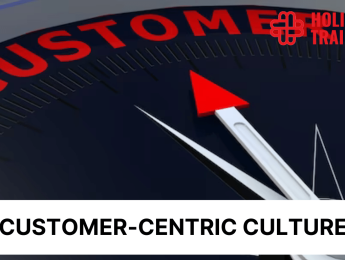Confidence is key in any working environment, especially if you have responsibility for other people or projects. You need confidence and forethought to push forward, change plans where required, and identify risks and needs for contingency. Above all else, your superiors must have faith that you know what you’re doing and trust your processes. You’ll need a good sense of emotional intelligence for this to work.
Emotional resilience is incredibly important for any business to maintain productivity, quality, and a clear view of the future. It’s essential that you know where you stand in the business and can utilise your knowledge and communication skills to future-proof your projects by gaining buy-in from other invested parties. However, getting people on your side isn’t always easy, so it’s important that you hone your negotiation skills and become resilient to knockbacks and rejection.
Emotional resilience will help you gauge risks, amend processes, and lead a team to success. You’ll be a great role model and able to motivate your team through challenges to ensure you always come out on top.
Upon completion of this course, participants will be able to:
- Understand the difference between Emotional Intelligence and Emotional Resilience.
- Build up strong relationships with the power of influence.
- Learn mental fortitude techniques.
- Improve your confidence and your resilience.
- Develop your negotiation techniques and get stakeholders on your side.
- Increase your resilience to downturns and knockbacks.
- Predict risk areas and plan contingency projects to deflect the need for resilience.
This course is designed for anyone in a leadership role that aims to improve their resilience to negativity and motivate a team of individuals to overcome challenges in the workplace. The course will allow leaders to take control and remain calm in any scenario using effective communication techniques. It would be most beneficial for:
- Line Managers
- Business Managers
- Business Owners
- Team Leaders
- Project Managers
- Business Development Managers
- Planning Managers
- HR Professionals
- Sales Managers
- Marketing Consultants
This course uses a variety of adult learning methods to aid understanding. The high-quality course contains practical exercises and presentations to help students understand resilience. Real-world examples are used to help students better understand resilience, and role-playing exercises will be conducted to test participants’ resilience in various scenarios.
The participants will learn to become more confident and work through difficult situations with self-reassurance and full motivation using professional tools and techniques.
Day 5 of each course is reserved for a Q&A session, which may occur off-site. For 10-day courses, this also applies to day 10
Section 1: Significance of Emotional Resilience
- What is VUCA, and how do I properly apply it?
- Emotional resilience and the importance of remaining in control.
- Understanding the difference between Emotional Resilience and Emotional intelligence.
- Why is it important to properly present yourself as a leader?
- Improvement as a person and for leadership.
- How to healthily promote change as a leader.
- Reviewing the leadership profile.
Section 2: Building Up Your Emotional Resilience
- Using the power of the mind to develop resilience.
- Using active skills to gain a positive attitude.
- Regaining control of situations and dealing with consequences.
- Control your assertiveness.
- Taking control of your inner reactions and discipline.
Section 3: Leading Through Decisions with Emotional Intelligence
- Make sure you have a clear idea before acting ensuring useful, quick techniques are used.
- Improve your quick-thinking skills with models and various examples.
- Using structured techniques for ideas.
- Discovering solutions and acknowledging the key factors.
- Deep understanding of convergent and divergent decision-making.
- What is the decision-making funnel model?
- Thinking before you act as a leader.
Section 4: Overcoming Problems Rationally
- Learning to control your negativity within yourself as well as others.
- Positive influence and trust within the workplace.
- Effectively dealing with conflict.
- How do I properly cope with stressful situations?
- What is mental fortitude, and how do I control it?
- Becoming empowered in a leadership role where everyone
- Ensuring the well-being of your team as well as yourself and your clients.
- Make sure there is clear and direct communication.
Section 5: Emotional Resilience in Leadership
- Make sure you have clear organisational skills as a leader.
- The foundation of a resilient organisation.
- Important messages need to be made clear in companies.
- Building up resilience and emotional intelligence during an organisation.
- Making an emotional development plan.
- Planning the steps on your emotional resilience leadership journey.
Upon successful completion of this training course, delegates will be awarded a Holistique Training Certificate of Completion. For those who attend and complete the online training course, a Holistique Training e-Certificate will be provided.
Holistique Training Certificates are accredited by the British Assessment Council (BAC) and The CPD Certification Service (CPD), and are certified under ISO 9001, ISO 21001, and ISO 29993 standards.
CPD credits for this course are granted by our Certificates and will be reflected on the Holistique Training Certificate of Completion. In accordance with the standards of The CPD Certification Service, one CPD credit is awarded per hour of course attendance. A maximum of 50 CPD credits can be claimed for any single course we currently offer.
- Course Code MG2-134
- Course Format Classroom, Online,
- Duration 5 days


